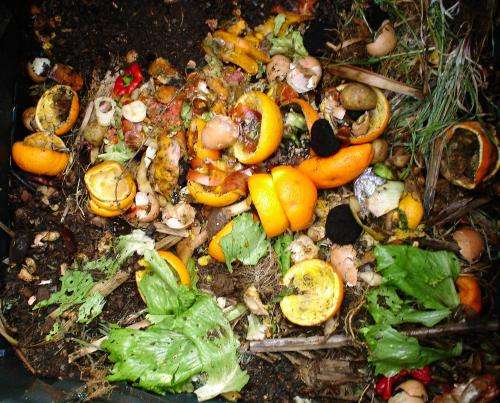Young entrepreneurs innovate in green energy with an in situ organic waste digester

Young Mexican entrepreneurs have developed a bio-digestion plant capable of generating electricity from organic waste in the market of the Nopal Collection Center in Mexico City.
The company SUEMA, Sustainability in Energy and Environment, created by Jahir Mojica Hernández, Carlos Apipilhuasco Gonzalez Mejía and Nelly Rodriguez, designed a system for waste treatment and decided to implement it in the market sector due to the amount of waste they generate.
The plant will be located in Milpa Alta, a delegation in the south of Mexico City, and process three to five tons of waste per day operating 24 hours to generate its own electricity and illuminate the market, thus benefiting from 65 tons of organic waste per month. The treatment plant will also generate power from sunlight.
Having an on-site plant will avoid transporting organic waste to the Bordo Poniente, the city's wasteland, an extra expenditure of up to 640 pesos per tonne per day. With the capture of harmful greenhouse gases, energy will be generated and a soil improver will be produced, which will be delivered to the farmers.
The soil improver, which is equivalent to a mixture of nutrients up to 600 kilograms per day, generates higher quality produce, making the development attractive for traders, which will help in growing and marketing.
"The plant will improve competitiveness, image and increase the number of customers. It is intended to get people more interested in going to the market instead of a convenience store," said the CEO of the company, Jahir Mojica.
"The public markets are entities of economy for the city and main supply centers for poor people; however, they have weakened against major foreign consortia, which often define the price of commodities,".
SUEMA decided to use the Nopal Collection Center in Milpa Alta as host for the natural energy production plant, because the delegation has the first place in the waste separation program of the city; however, it is the one that receives less budget for infrastructure. "Tenants separate waste very well, it is a deeply rooted practice in this area," said Carlos Apipilhuasco, director of Engineering.
Another achievement of the company is the construction of an innovation research center, with three research areas: soil improvement, thermal use of solar energy and bioenergy.
Provided by Investigación y Desarrollo

















